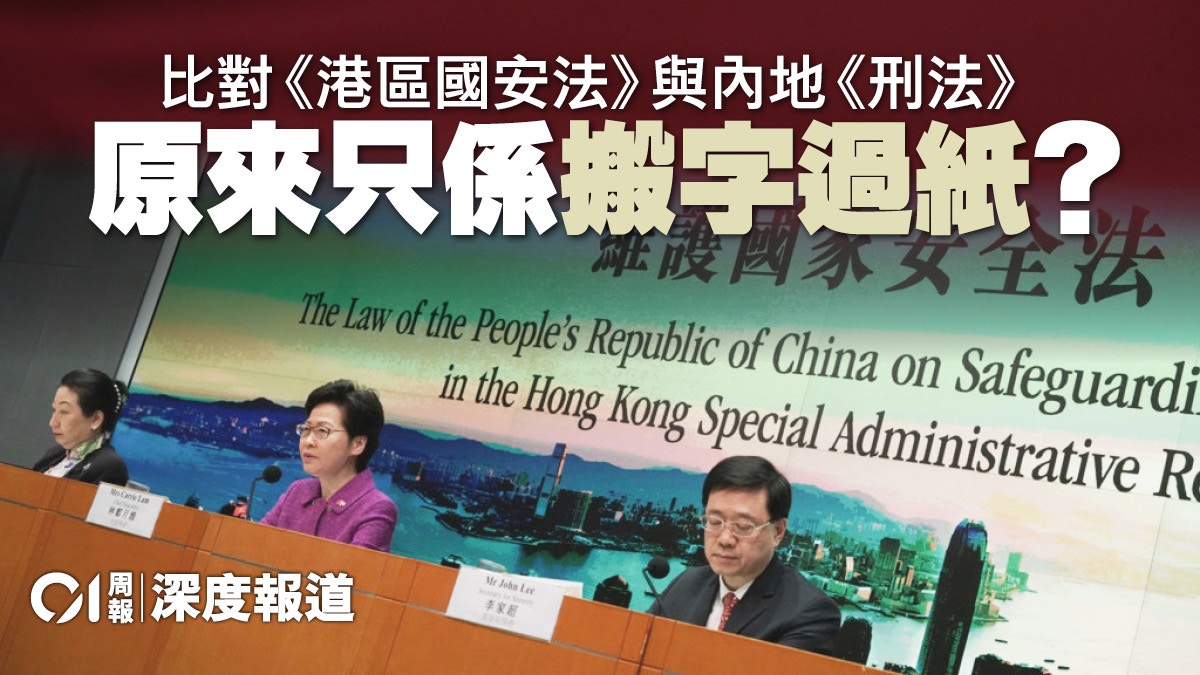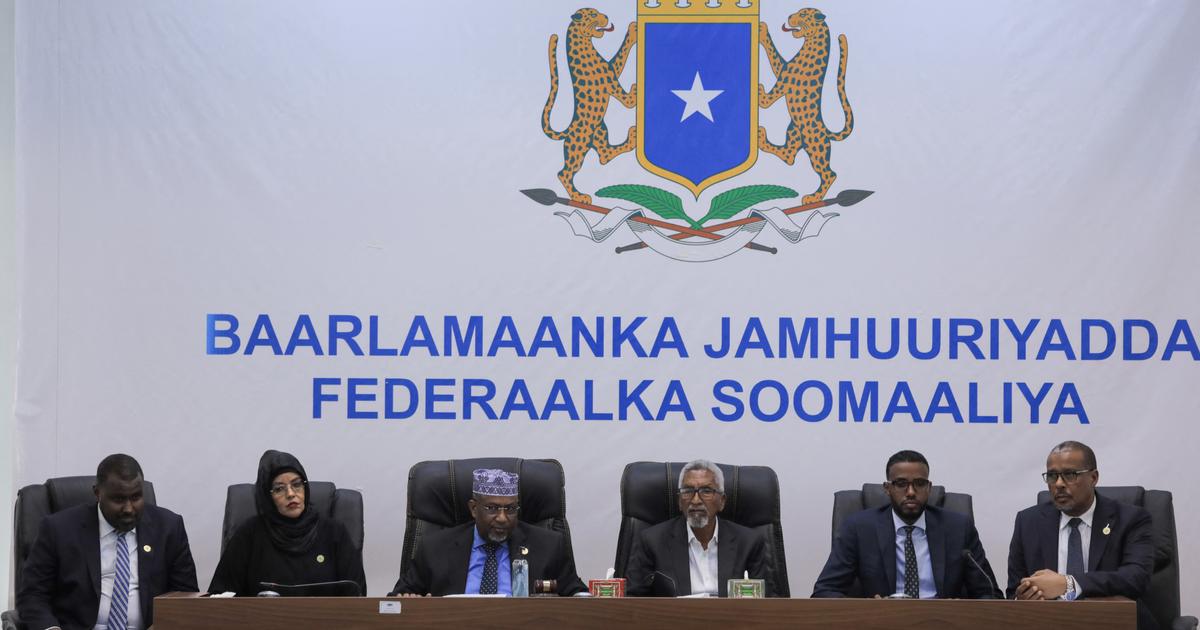weekly
Written by: Ling Yichen
2020-07-08 17:56
Date of last update: 2020-07-08 17:56Last Tuesday (June 30), the "Law of the People's Republic of China on the Maintenance of National Security in the Hong Kong Special Administrative Region" (hereinafter referred to as the "National Security Law of the Port Area") was signed by the Chief Executive, Lin Zhengyue, and published in Hong Kong. Chapter 3 "Crime and Punishment" is the most important part of the entire "Minato City National Security Law". The chapter lists the specific composition and corresponding criminal responsibilities of the four types of crimes. Among them, all charges are divided into two or three levels according to whether the prisoner is the chief of the criminal, whether the circumstances are serious, and whether the crime is serious.
Most of the relevant articles analyzed or commented in the workshop focused on comparing them with the current laws of Hong Kong, the common law traditions, or the laws of other countries, and less considered the current Chinese mainland that is dominated by the Criminal Law of the People’s Republic of China (hereinafter referred to as the “Criminal Law”). The influence of the law on the content of the substantive law of the "National Security Law of Minato City".
Based on national criminal law
The provisions of the National Security Law of the Port Area are basically based on the content of the Criminal Law (see Table 1) . The "crime of splitting the country" and "crime of subverting the state power" are taken from Articles 103, 105 and 107 of the Criminal Law. "Collusion of foreign or foreign forces endangering national security" is a combination of several "crimes against national security" under Articles 102, 106 and 110 of the Criminal Law. "Terrorist crime" is formed by putting multiple "crimes endangering public safety" involved in Articles 117 to 120 of the Criminal Law under "National Security."
As an element of the crime of "terrorist activities", "explosion, arson or the release of poisonous, radioactive, infectious pathogens and other substances", "destruction of transportation, transportation facilities, electrical equipment, gas equipment or other flammable and explosive equipment" in " The Criminal Law was originally an independent crime that was not a "terrorist activity."
The criminal responsibilities of different levels of crimes are generally not much different from the corresponding crimes of the Criminal Law (see Table 2) . The penalties for the two direct crimes of "secession of the country" and "crime of subverting the state power" are the same. The indirect incitement and funding of crimes are simply simplification of the classification into "serious plot" and "poor plot". The punishment for participating in or assisting terrorist organizations is also the same as the description of the criminal liability of the relevant crimes of the Criminal Law, and the punishment for directly committing "crimes of terrorist activities" is also similar to the corresponding "crimes of endangering public safety" of the Criminal Law. .
Provisions that are not directly related to crime or criminal liability also attack the Criminal Law. Article 33 of the National Security Law of Minato City lists the mitigation or exemption cases, and the same description can be found in Article 24, Article 67 and Article 68 of the Criminal Law.
Increased or decreased standards of crime
It is impossible for the writer to copy the entire "Criminal Law", but it needs to make some adjustments according to the situation in Hong Kong. The "crime of subversion of state power" in the "National Security Act of the Minato City" will delete the motive for "overthrowing the socialist system" for the crime corresponding to Article 105 of the Criminal Law. The National Security Law of the Minato District attempts to introduce the deprivation of political rights from the Mainland into Hong Kong. Article 54 of the Criminal Law originally stipulated that the "right to vote" is also deprived of rights. Article 21 of the Hong Kong Bill of Rights is Article 25 of the International Covenant on Civil and Political Rights, so the Minato City National Security Law does not prohibit their right to vote at all levels in future elections.
There are some local criminal responsibilities of the Minato District National Security Law that are lighter than the Criminal Law. The most obvious point is that there is no death penalty. In addition, the Criminal Law has severely incited or funded the crimes of "secession of the country", "crimes of subversion of the state power" and "crimes of terrorist activities" originally only called "more than five years." The "Minato City National Security Law" has added a cap of "under ten years" for sentencing.
Of course, this is definitely not to say that the Minato City National Security Law is no stricter than the Criminal Law. For example, Articles 55 and 57 of the Criminal Law stipulate that only those sentenced to life imprisonment "should be deprived of political rights for life." Any crimes against national security committed by the Minato City National Security Law will permanently lose the political right to vote; and Article 7 of the Criminal Law stipulates that Chinese citizens who commit crimes outside the country "the maximum punishment prescribed by this law is less than three years in prison, It may not be prosecuted", "For those who commit crimes stipulated in this law, this law shall apply", but this condition does not appear in Article 37 of the "Minato City National Security Law".
Reference to Hong Kong and Macao's legislative experience
The drafters of the National Security Law of the Minato District have referred to similar local legislative experience, that is, the National Security (Legislative Provisions) Bill (hereinafter referred to as the "Legislation Bill") proposed by the Hong Kong Government in 2003 to implement Article 23 of the Basic Law , And Law No. 2/2009 “Law on the Maintenance of National Security” adopted by the Macao Special Administrative Region in 2009 (hereinafter referred to as the “Macao National Security Law”).
The wording of the "National Security Act of the Minato District" has traces referring to the "Draft" and the "Macao National Security Act". For example, "Immediate Crime" is derived from the "Legislative Draft" and other Hong Kong laws and describes the crimes against national security. The term "other (serious) illegal means" comes from the "Macao National Security Law".
Article 20 of the National Security Law of the Minato District lists one of the objectives of the crime of "dividing the country" as "separating the Hong Kong Special Administrative Region or any other part of the People's Republic of China from the People's Republic of China", which is inherited from the "Legislation of the Country" "Definition.
Article 22 of the "National Security Act of the Minato District" lists four behavioral objectives of "crime to subvert the state power". Except for some descriptions of specific actions in the script, it actually blends the "Legislation Draft" and the "Macao National Security Law". The definition of "subversion".
Cooperate with local anti-terrorism regulations
The United Nations (Anti-Terrorism Measures) Regulations (hereinafter referred to as the “Anti-Terrorism Regulations”) passed by Hong Kong as early as July 2002 contained many crimes related to “terrorist act”. In the process of formulating the "National Security Act of the Minato City", which includes "crime of terrorist activities", it is undoubtedly necessary to refer to this local law in Hong Kong to deal with terrorist activities.
The definition of "terrorist activity" in the "National Security Act of the Minato City" directly refers to the "Anti-Terrorism Regulations". The first "serious violence against human beings" is not only the same, but also the intention of coercing the SAR government or international organizations, threatening the public, and promoting political claims. They are all copied from the "Anti-Terrorism Regulations."
Article 14 of the Counter-Terrorism Regulations overlaps with Article 26 of the Minato City National Security Act, but the latter’s criminal liability will only go to the same “punishment of less than ten years’ imprisonment and punishment,” even if the circumstances are serious. "Gold" is actually less than the maximum 14 years' imprisonment and fines under the Anti-Terrorism Regulations.
Treat the new law calmly and rationally
On the premise of focusing on the content of the substantive law, we must recognize that most of the provisions of the National Security Law of the Port Area can be found in the National Criminal Law, the Hong Kong Draft Legislation and the Anti-Terrorism Regulations, and the Macao National Security Law ”Found the source, only a few clear examples of Hong Kong’s political situation in recent years.
As the "Minato City National Security Law" is included in the Annex of the "Basic Law" and has been implemented in the Hong Kong Gazette, it has become an integral part of local laws. If we truly believe in the "rule of law", no matter what political position we belong to, it is necessary to take a calm and rational attitude towards this new law.
The above excerpt is from the 221th issue of "Hong Kong 01" Weekly Report (July 6, 2020) "Hong Kong Independence Thoughts-From Germination to Destruction". To read the full text, please click here to subscribe to the weekly report, or click here to preview the weekly e-newsletter for more in-depth reports.
More weekly articles:【01 Weekly News Page】
"Hong Kong 01" Weekly, available at major newsstands, OK convenience stores and Vango convenience stores.
Selected content of the 221 issue of "Week 01":
[Cover Report] Hong Kong Independence Thoughts-From Germination to Destruction
The passage of the "National Security Law of the Port Area" almost heralds the end of the local "Hong Kong independence" ideological trend. The localist "national teacher" Chen Yun announced his withdrawal from Hong Kong social movements, and made a note of this. However, where did this radical trend of thought come from? How to drag Hong Kong into a politically torn situation? Where will it go in the future?
[In-depth Interpretation] The Inheritance and Adjustment of China’s Criminal Law by the National Security Law of Minato
It is not difficult to see that the provisions of the Port Area National Security Law are basically based on the Chinese Criminal Law, which is the first attempt of the central government to try to unify the differences of "one country, two systems" at the legal level. Regardless of any political position, it is necessary to be calm and rational Look at this new Hong Kong law.
[01 Initiative] Four steps to reconcile with young people
One year after the anti-amendment campaign broke out, the number of people arrested is approaching 9,000, and they are facing legal prosecution, mostly young people. Criminal consequences alone may not make young people abide by the law. "Hong Kong 01" advocates supporting young people at the legal, psychological and social relations levels to help them solve problems and truly repair social tears.
[Other exciting content]
In Taiwan, Lu Sheng, who fought silently, faced nowhere
How do you not die against a cloud game console?
The epidemic prompts changes in the European art world
How can conspiracy theories succeed? Ignorance is the best entrance to fear
The Hong Kong version of the National Security Law 01 Weekly reports on the Basic Law







/cloudfront-eu-central-1.images.arcpublishing.com/prisa/R7QWDVRG2JFD7GB2GWS4DLWKCM.jpg)

